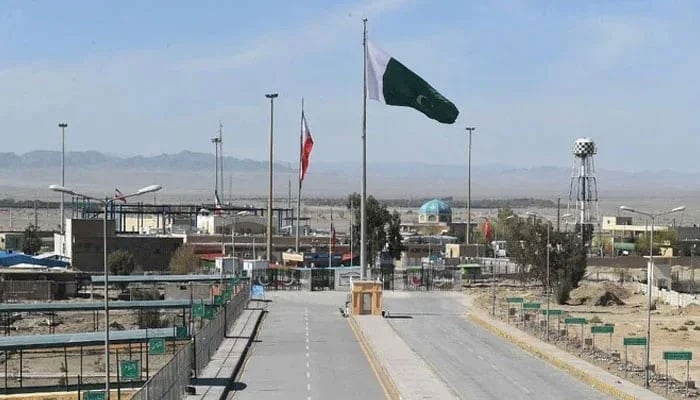Regional peace
Back in January, relations between Iran and Pakistan also suffered a blow when Iran carried out unprovoked air strikes in Balochistan
In a recent phone conversation with his Iranian counterpart Seyyed Ebrahim Raisi, President Asif Ali Zardari vowed to boost bilateral cooperation between the two countries. During the call, President Zardari also stressed the need to enhance the exchange of information to overcome the security challenges being faced by both Iran and Pakistan. Over the last two decades, Pakistan has fought hard to rid its soil of terrorism and terrorist groups. Unfortunately, terrorism made a comeback in Pakistan shortly after the fall of Kabul. Pakistan has always tried to have good relations with its neighbouring countries and has consistently talked about regional peace. From Pakistan’s perspective, good relations with its neighbours – especially India, which is considered a hostile neighbour – is vital for regional peace.
China has remained a strong and steady partner of Pakistan over the decades. There have been terrorist attacks targeting the Chinese in Pakistan over the years but China has still always been a key friend of Pakistan. The Taliban regime in Afghanistan was perceived to be less hostile than the previous Afghan governments of Ashraf Ghani and Hamid Karzai but the Afghan Taliban have turned out to be a complex problem for Pakistan as they are harbouring terrorist outfits like the Tehreek-e-Taliban Pakistan (TTP) on its soil. Because of this, Pakistan had to carry out an intelligence-based operation in Afghanistan’s border areas, targeting militants. Back in January, relations between Iran and Pakistan also suffered a blow when Iran carried out unprovoked air strikes in Balochistan. The National Security Committee (NSC) reiterated Pakistan’s resolve to respond with “full might” in the face of a violation of its territorial integrity. The NSC meeting took place after Pakistan carried out a strike targeting Pakistani-originated Baloch terrorists residing in the ungoverned spaces inside Iran in a tit-for-tat response to Iran’s strikes. The diplomatic row escalated quite quickly as Pakistan recalled its ambassador from Tehran and expelled the Iranian ambassador. Soon after Pakistan’s retaliatory strikes, though, things calmed down.
Regional peace is vital for all countries. Unfortunately, we have a regime in Afghanistan that refuses to take action against the TTP and other assorted terrorist groups. Iran has been a good neighbour but there have been tensions due to Baloch militants escaping to Iran. The real bone of contention in the region has been India under Modi. The general elections in India are around the corner and experts say that Modi will make another comeback for the third time. The ball is in India’s court if it wants to normalize relations with Pakistan as our governments over the years have extended an olive branch to India but after the abolition of the special status of Indian Occupied Kashmir, India has only become more antagonistic. China being a key ally of Pakistan is also a problem for India but our relations with China cannot be held hostage to these things. We hope that all countries realize the power of diplomacy so peace can finally prevail in the region.
-
 ChatGPT Caricature Prompts Are Going Viral. Here’s List You Must Try
ChatGPT Caricature Prompts Are Going Viral. Here’s List You Must Try -
 James Pearce Jr. Arrested In Florida After Alleged Domestic Dispute, Falcons Respond
James Pearce Jr. Arrested In Florida After Alleged Domestic Dispute, Falcons Respond -
 Cavaliers Vs Kings: James Harden Shines Late In Cleveland Debut Win
Cavaliers Vs Kings: James Harden Shines Late In Cleveland Debut Win -
 2026 Winter Olympics Snowboarding: Su Yiming Wins Bronze And Completes Medal Set
2026 Winter Olympics Snowboarding: Su Yiming Wins Bronze And Completes Medal Set -
 Trump Hosts Honduran President Nasry Asfura At Mar-a-Lago To Discuss Trade, Security
Trump Hosts Honduran President Nasry Asfura At Mar-a-Lago To Discuss Trade, Security -
 Cuba-Canada Travel Advisory Raises Concerns As Visitor Numbers Decline
Cuba-Canada Travel Advisory Raises Concerns As Visitor Numbers Decline -
 Anthropic Buys 'Super Bowl' Ads To Slam OpenAI’s ChatGPT Ad Strategy
Anthropic Buys 'Super Bowl' Ads To Slam OpenAI’s ChatGPT Ad Strategy -
 Prevent Cancer With These Simple Lifestyle Changes
Prevent Cancer With These Simple Lifestyle Changes -
 Air Canada Flight Diverted St John's With 368 Passengers After Onboard Incident
Air Canada Flight Diverted St John's With 368 Passengers After Onboard Incident -
 Experts Reveal Keto Diet As Key To Treating Depression
Experts Reveal Keto Diet As Key To Treating Depression -
 Inter Miami Vs Barcelona SC Recap As Messi Shines With Goal And Assist
Inter Miami Vs Barcelona SC Recap As Messi Shines With Goal And Assist -
 David Beckham Pays Tribute To Estranged Son Brooklyn Amid Ongoing Family Rift
David Beckham Pays Tribute To Estranged Son Brooklyn Amid Ongoing Family Rift -
 Jailton Almeida Speaks Out After UFC Controversy And Short Notice Fight Booking
Jailton Almeida Speaks Out After UFC Controversy And Short Notice Fight Booking -
 Extreme Cold Warning Issued As Blizzard Hits Southern Ontario Including Toronto
Extreme Cold Warning Issued As Blizzard Hits Southern Ontario Including Toronto -
 Lana Del Rey Announces New Single Co-written With Husband Jeremy Dufrene
Lana Del Rey Announces New Single Co-written With Husband Jeremy Dufrene -
 Ukraine-Russia Talks Heat Up As Zelenskyy Warns Of US Pressure Before Elections
Ukraine-Russia Talks Heat Up As Zelenskyy Warns Of US Pressure Before Elections




